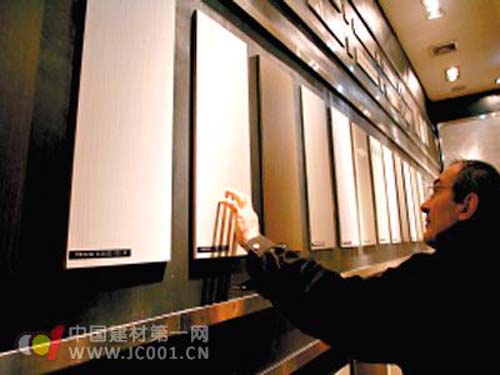 Anti-dumping has continued, Foshan ceramics are facing unprecedented pressure. At the Foreign Trade Forum of the Ceramics and Building Materials Industry recently held by the Municipal Bureau of Foreign Trade and Economic Cooperation and the Global Vision Group, many ceramic companies stated that they will increase the development of emerging markets.
Anti-dumping has continued, Foshan ceramics are facing unprecedented pressure. At the Foreign Trade Forum of the Ceramics and Building Materials Industry recently held by the Municipal Bureau of Foreign Trade and Economic Cooperation and the Global Vision Group, many ceramic companies stated that they will increase the development of emerging markets. EU, Thailand, South Korea, Argentina, Peru and other countries and regions have launched anti-dumping investigations on Chinese tiles this year. The general manager of an international business department of a large-scale ceramics company stated that the exports were negative profits in the past two months. “We have doubled our exports in Venezuela this year,†said Liu Wancheng, head of the ceramic tile export department of Shangyuanshan River. Although ceramic products have encountered anti-dumping in many countries, there are still opportunities in one or two hundred countries around the world. For example, there are many infrastructure projects in the South American market and the market is growing very fast.
According to customs statistics, in the first seven months of this year, Foshan ceramics exports actually increased by 21.1%, of which exports to India and Brazil increased by 56.4% and 83.2% respectively. "But we have a very severe decline in the US market, and the profit rate is very low," said An Naqi, the manager responsible for the export of Lee.
“In the market downturn environment, companies must pay special attention to the changes in the procurement channels.†Lu Jing, Global Market Director of South China, reminded that because of the economic downturn, many international traders aged 60 or 70 retired early and the younger generation succeeded. Gradually changing the old generation's habit of not using the Internet, the first choice is online shopping. Internet marketing will also become a breakthrough in the corporate crisis.
However, the heads of companies with strong ceramics and Shangyuanshan River tiles all indicated that they used to develop foreign markets mainly through the Canton Fair. Although there are also involved in online marketing, they have poor results. “There are not many inquiries, and all of them are of low quality. Enquiry.†Lu Jing believes that this is mainly because companies are adopting B2C's online marketing model and have not thoroughly studied consumer psychology of target customers. In the future, according to the different needs of different customer goals, more from the customer's point of view to plan marketing, will integrate their own advantages of selling points presented through the network in front of them.
She advises companies not to ignore the small customers that are currently emerging from emerging markets. “Now some developing countries are just as full of opportunities for development as China was 20 or 30 years ago. Today, he may still be a small dealer. A few years later, It may be a big customer."